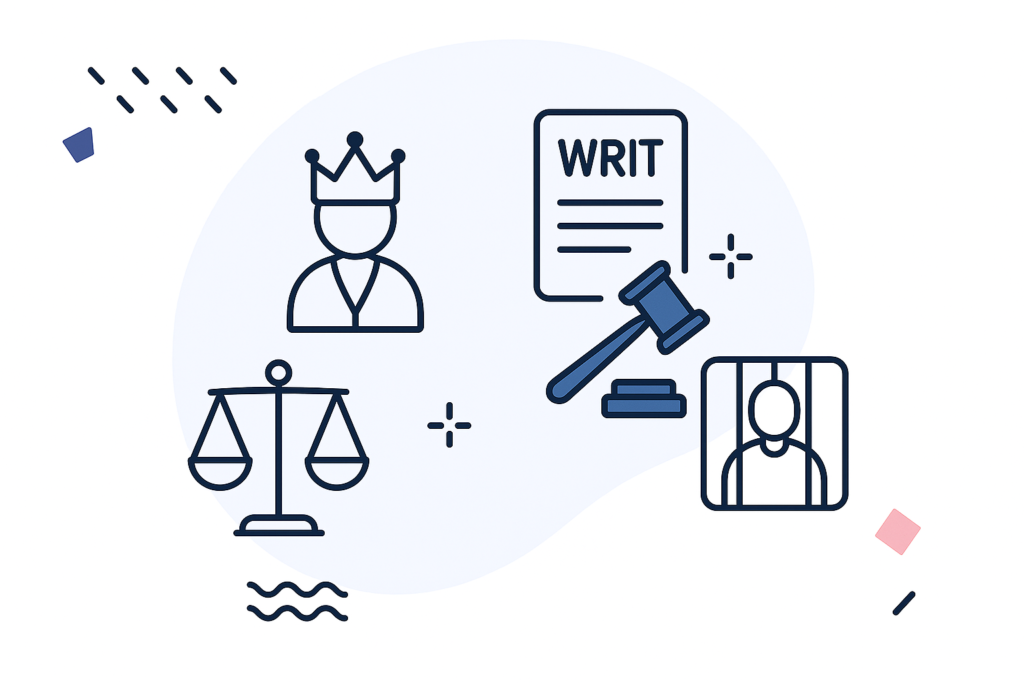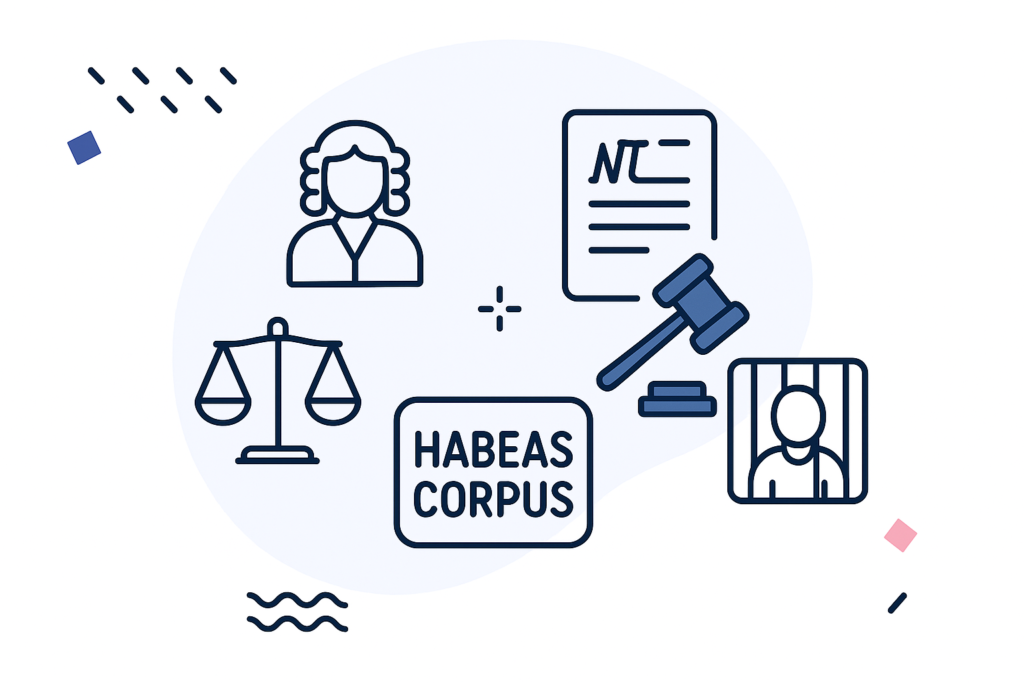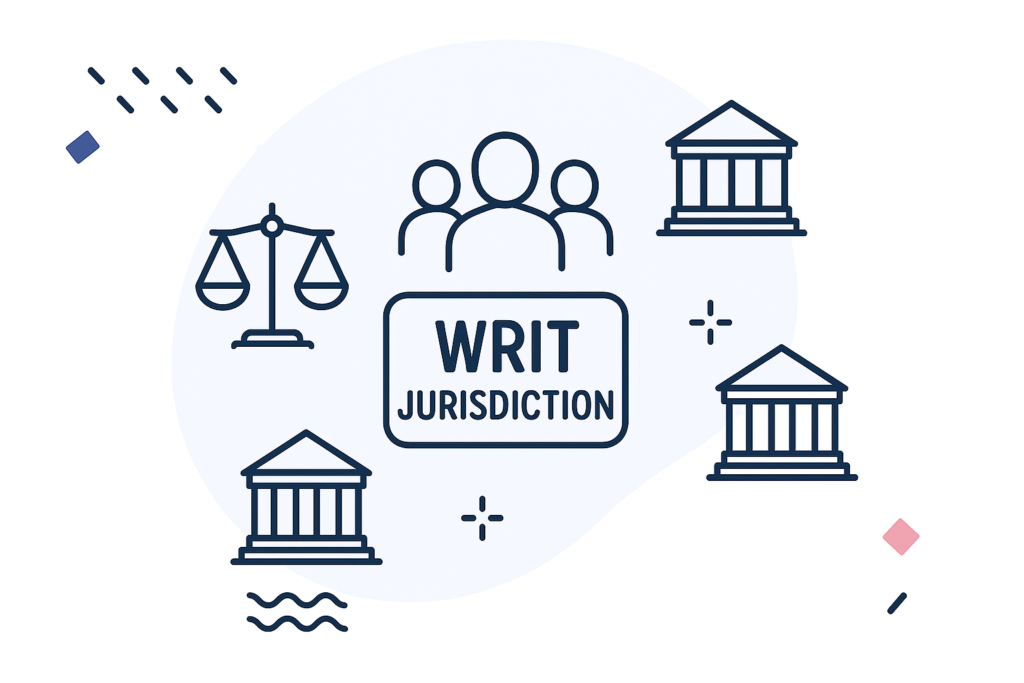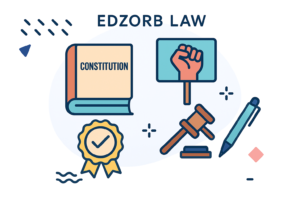Writ petitions empower citizens👨💻 to protect their fundamental rights and challenge unlawful actions. The Indian Constitution allows individuals to approach the Supreme Court and High Courts when their legal or constitutional rights are violated.
By filing a writ petition, you can demand accountability from public authorities and ensure justice prevails. Let’s dive in!
What is a Writ Petition?
A writ petition is a formal request made to a court, seeking a writ to enforce legal or constitutional rights. These court orders compel public officials, government bodies, or lower courts to act lawfully. Writ petitions serve as a legal shield, ensuring fundamental rights are upheld.
When Can You File a Writ Petition?

You can file a writ petition in two main situations:
📅 Enforcing Fundamental Rights: Directly approach the Supreme Court or High Court (Article 226) if your fundamental rights are violated.
📄 Enforcing Other Legal Rights: High Courts have broader powers under Article 226 to address violations of statutory and constitutional rights beyond fundamental rights.
Types of Writs & Landmark Cases
Indian writs originate from English common law and serve as extraordinary legal remedies.
🔖 Habeas Corpus (“Produce the Body”): Ensures no one is unlawfully detained.
- Case: Sunil Batra Vs Delhi Administration (1980) – Recognized inhumane treatment as unlawful detention.
🔖 Mandamus (“We Command”): Directs public officials to perform their duties.
- Case: Bihar Eastern Gangetic Fishermen Cooperative Society Vs Sipahi Singh (1977) – Compelled the state to fulfill statutory obligations.
🔖 Prohibition (“Stay Your Hand”): Prevents lower courts from exceeding their jurisdiction.
- Case: East India Commercial Co. Ltd. Vs Collector of Customs (1962) – Court halted an unlawful proceeding.
🔖 Certiorari (“To Be Certified”): Quashes unlawful decisions by lower courts.
- Case: T.C. Basappa Vs T. Nagappa (1954) – Overturned an administrative decision that exceeded jurisdiction.
🔖 Quo Warranto (“By What Authority”): Challenges a person’s right to hold a public office.
- Case: University of Mysore Vs Govinda Rao (1965) – Questioned an illegal academic appointment.
How to File a Writ Petition?

Follow these steps to file a writ petition and seek justice!
- Draft the Petition: Clearly state your case, facts, and the relief you seek.
- Annex Documents: Attach supporting evidence (notifications, official records, etc.).
- File an Affidavit: Verify the facts with a sworn statement.
- Court Review & Notices: The court examines your case and notifies respondents (government officials, authorities).
- Judgment: The court may issue the writ, reject the petition, or suggest alternative remedies.
Writ Petition vs. Appeal: What’s the Difference?
- Writ Petition: Filed for violations of fundamental or legal rights, directly in higher courts.
- Appeal: A request for a higher court to review a decision made by a lower court due to legal errors.
The Role of High Courts in Writ Petitions
High Courts 🏢 play a crucial role under Article 226 by addressing fundamental and statutory rights violations. They act as a stronghold against unlawful governance and ensure justice at the state level.
Real-Life Impact: Landmark Writ Petitions

👉 Maneka Gandhi Vs Union of India (1978): Expanded the scope of Article 21 (Right to Life & Liberty) and emphasized procedural fairness.
👉 A.K. Kraipak Vs Union of India (1970): Applied principles of natural justice to administrative decisions.
Writ Petitions: Pillars of Democracy
Writ petitions ensure government accountability, protect individual freedoms, and maintain checks & balances in a democracy. They act as a powerful legal remedy to fight against injustice and uphold the rule of law.
Conclusion: Why Writ Petitions Matter
Writ petitions serve as a direct lifeline for citizens seeking justice against unconstitutional actions. They reinforce judicial commitment to fairness and protect fundamental rights ⚖️ Knowing your legal remedies empowers you to stand up for your rights!
Stay informed, stay empowered with Edzorb Law! ✨

 Podcast
Podcast








 Features
Features






